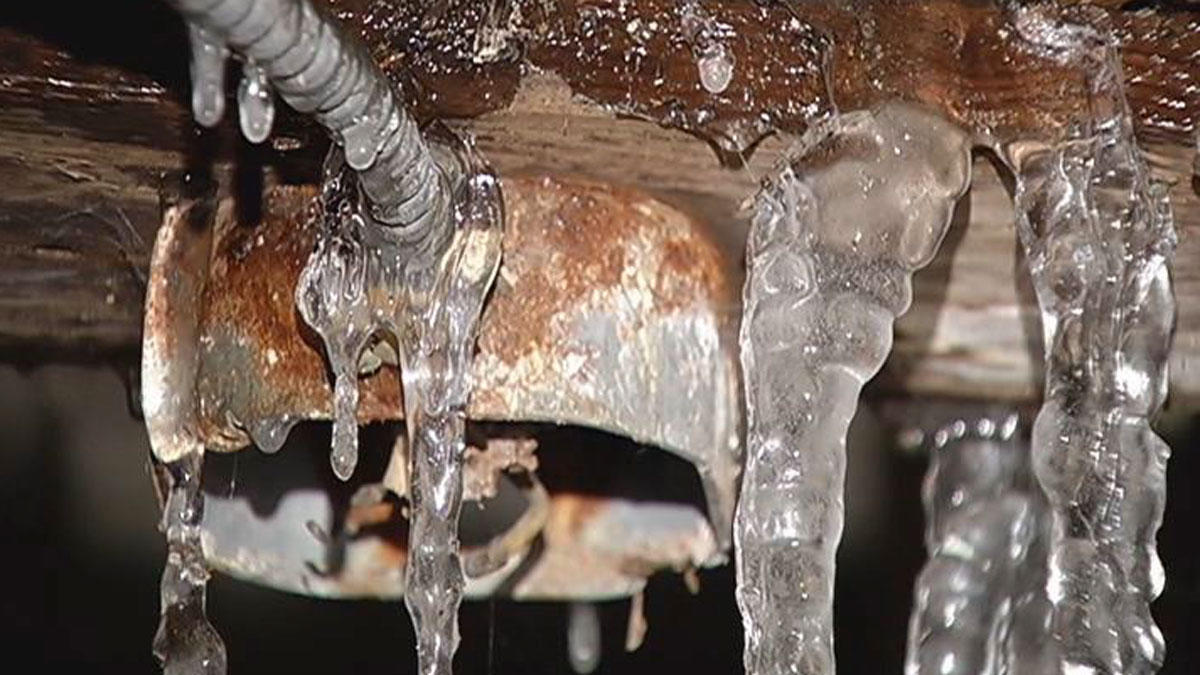Preventing Pipes from Cold Weather: Top Tips
Preventing Pipes from Cold Weather: Top Tips
Blog Article
Every person may have his or her own notions involving How To Avoid Freezing Pipes.

Cold weather can damage your pipes, especially by freezing pipelines. Here's just how to prevent it from taking place and what to do if it does.
Introduction
As temperatures decline, the risk of frozen pipelines rises, potentially resulting in pricey fixings and water damages. Recognizing how to prevent frozen pipelines is important for house owners in cold climates.
Prevention Tips
Insulating prone pipelines
Cover pipelines in insulation sleeves or make use of heat tape to shield them from freezing temperature levels. Focus on pipelines in unheated or external areas of the home.
Home heating techniques
Keep interior spaces properly warmed, particularly areas with plumbing. Open cabinet doors to permit warm air to flow around pipes under sinks.
Just how to determine frozen pipelines
Look for lowered water flow from taps, unusual smells or sounds from pipelines, and noticeable frost on exposed pipelines.
Long-Term Solutions
Architectural changes
Take into consideration rerouting pipes away from exterior walls or unheated areas. Include additional insulation to attics, basements, and crawl spaces.
Upgrading insulation
Purchase top quality insulation for pipes, attics, and wall surfaces. Correct insulation assists keep regular temperature levels and minimizes the threat of icy pipes.
Securing Exterior Pipes
Yard hoses and outdoor taps
Disconnect and drain garden tubes before winter months. Set up frost-proof spigots or cover exterior faucets with shielded caps.
Understanding Icy Pipes
What creates pipes to freeze?
Pipelines freeze when revealed to temperatures listed below 32 ° F (0 ° C) for prolonged durations. As water inside the pipes freezes, it expands, putting pressure on the pipeline walls and possibly causing them to burst.
Dangers and problems
Frozen pipes can bring about supply of water interruptions, building damage, and costly fixings. Burst pipes can flood homes and trigger considerable structural damage.
Indications of Frozen Pipes
Identifying icy pipelines early can prevent them from breaking.
What to Do If Your Pipelines Freeze
Immediate actions to take
If you believe icy pipelines, maintain faucets open to relieve pressure as the ice melts. Use a hairdryer or towels taken in hot water to thaw pipes gradually.
Final thought
Stopping frozen pipes needs aggressive actions and fast actions. By understanding the causes, indicators, and preventive measures, home owners can protect their pipes throughout winter.
Helpful Tips to Prevent Frozen Pipes this Winter
UNDERSTANDING THE BASICS: WHY PIPES FREEZE AND WHY IT’S A PROBLEM
Water freezing inside pipes is common during the winter months, but understanding why pipes freeze, and the potential problems it can cause is crucial in preventing such incidents. This section will delve into the basics of why pipes freeze and the associated problems that may arise.
THE SCIENCE BEHIND FROZEN PIPES
When water reaches freezing temperatures, it undergoes a physical transformation and solidifies into ice. This expansion of water as it freezes is the primary reason pipes can burst. As the water inside the pipe freezes, it expands, creating immense pressure on the walls. If the pressure becomes too great, the pipe can crack or rupture, leading to leaks and water damage.
FACTORS THAT CONTRIBUTE TO PIPE FREEZING
Low Temperatures: Extremely cold weather, especially below freezing, increases the risk of pipes freezing. Uninsulated or Poorly Insulated Pipes: Pipes located in unheated areas, such as basements, crawl spaces, or attics, are more prone to freezing. Insufficient insulation or lack of insulation altogether exacerbates the problem. Exterior Wall Exposure: Pipes running along exterior walls are susceptible to freezing as they encounter colder temperatures outside. Lack of Heating or Temperature Regulation: Inadequate heating or inconsistent temperature control in your home can contribute to frozen pipes. PROBLEMS CAUSED BY FROZEN PIPES
- Pipe Bursting: As mentioned earlier, the expansion of water as it freezes can cause pipes to burst, resulting in significant water damage.
- Water Damage: When pipes burst, it can lead to flooding and water damage to your property, including walls, ceilings, flooring, and personal belongings.
- Structural Damage: Prolonged exposure to water from burst pipes can compromise the structural integrity of your home, leading to costly repairs.
- Mold and Mildew Growth: Excess moisture from water damage can create a favorable environment for mold and mildew growth, posing health risks to occupants.
- Disrupted Water Supply: Frozen pipes can also result in a complete or partial loss of water supply until the issue is resolved.
WHY CERTAIN PIPES ARE MORE PRONE TO FREEZING
- Location: Pipes located in unheated or poorly insulated areas, such as basements, crawl spaces, attics, or exterior walls, are at higher risk of freezing.
- Exterior Pipes: Outdoor pipes, such as those used for irrigation or exposed plumbing, are particularly vulnerable to freezing as they are directly exposed to the elements.
- Supply Lines: Pipes that carry water from the main water supply into your home, including the main water line, are critical to protect as freezing in these lines can affect your entire plumbing system.
- Underground Pipes: Pipes buried underground, such as those connected to sprinkler systems or outdoor faucets, can be susceptible to freezing if not properly insulated.
https://busybusy.com/blog/helpful-tips-to-prevent-frozen-pipes-this-winter/

Hopefully you enjoyed reading our article about Prevent Frozen Pipes . Thanks so much for taking the time to read through our content. Kindly pause to share this content if you liked it. Many thanks for being here. Revisit us soon.
Book Appointment Report this page